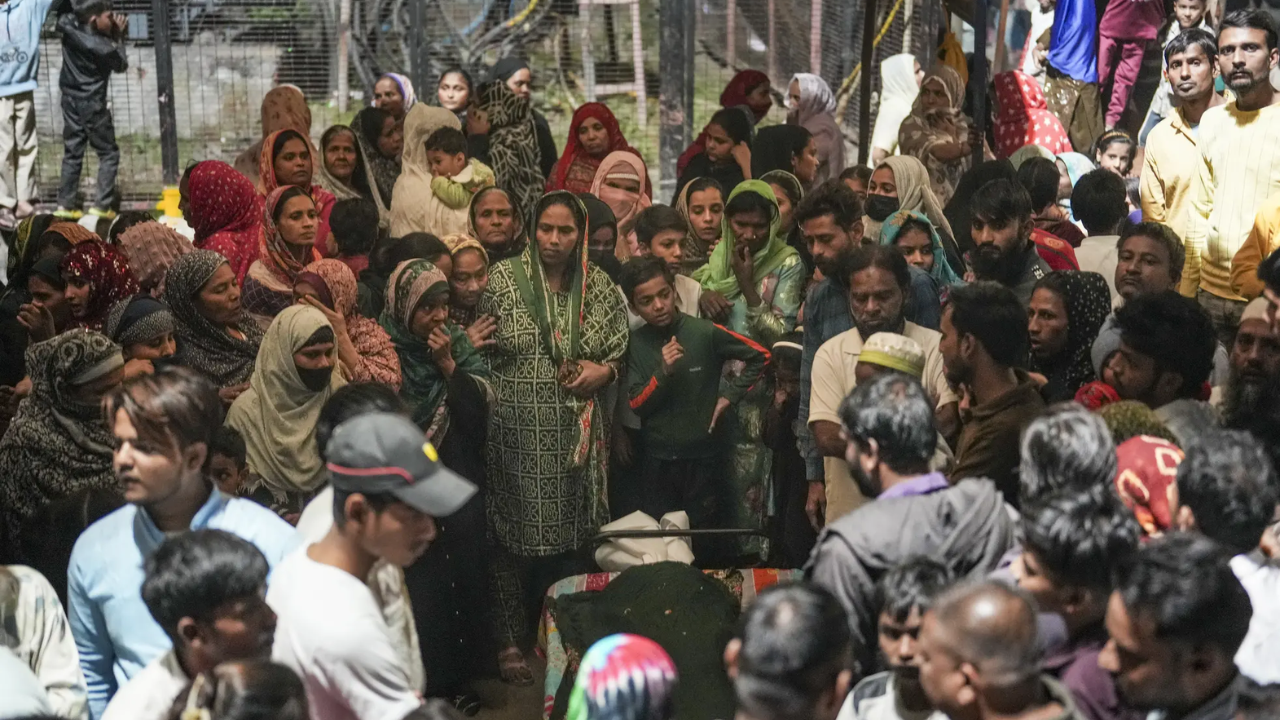Monday’s blast claimed the lives of many ordinary folks who had come from different corners of the country, drawn by Delhi’s promise of work that paid, of days that ran on time, of futures that could be planned one bill at a time. Two friends, Ashok Kumar, 34, and Lokesh Agarwal, 52, had met after months apart. Lokesh was in Delhi to see an ailing relative. And Ashok, a DTC driver, insisted on spending a few minutes together before heading home. Perhaps they talked about families. Who knows. By dawn, their bodies were back in Amroha (UP), shrouded in white. Then there was Mohsin, 32, who was finishing his evening round through Old Delhi, his e-rickshaw weaving between vendors and buses. He drove long hours to keep his two children in school. The rickshaw was found crumpled in the debris. Young Noman Ansari, 22, had come from Shamli that morning, hoping to buy cosmetics for his shop. He carried a list in his wallet. His brother survived the blast; he didn’t.

There were others, too. Dinesh Mishra, 32, had returned to Delhi after Diwali, leaving behind his daughters in UP’s Shravasti. He worked at a printing press. Pankaj Sahni, 22, a cabbie from Bihar, was waiting at a red light after a routine drop-off when the car in front of him exploded. Delhi man Amar Kataria, 33, a pharmacist, had called his father to say he was on his way for dinner. His phone was later found in the rubble. Mohammad Jumman, 35, an e-rickshaw driver from Shastri Park in the capital city, was driving home to his family when his location froze on his brother’s screen – a blinking dot that never moved again.
Printing press staffer had just gone back to work after Diwali at home
Dinesh Kumar Mishra (32), printing press worker | Native of Shravasti, Uttar Pradesh Ten days ago, Dinesh had travelled from Delhi to his village Ganeshpur in UP’s Shravasti to celebrate Diwali. He spent the afternoon decorating the mud walls of his home with his daughters, Bitta, 7, and Srishti, 4, before joining the evening prayers. His eldest son, Himanshu, 8, clung to his hand, reluctant to let go when it was time for him to leave. “I’ll be back soon,” Dinesh had said. “Just after the next order.” He worked at a printing press in Chandni Chowk, earning enough to send money home every few weeks. The work was hard but steady, and Delhi had begun to feel familiar – a rented room near the press, tea from the same stall each morning. His wife Reena Devi stayed back in Ganeshpur with the children, while his brothers Guddu and Rajesh worked as labourers elsewhere in Delhi. His father, Bhure Mishra, a farmer, called every Sunday to ask if he was eating well. “He always said the same thing,” Bhure recalled later. “Bas kuch din ki baat hai – just a matter of a few days.” On Monday evening, the blast near Red Fort ripped through that small certainty. For hours, the family tried calling. When no one answered, Guddu rode his motorcycle through the city’s chaos toward Chandni Chowk. He was the one who found Dinesh at LNJP Hospital. “I want to appeal to the PM to help us,” said Bhure. “Whatever we receive, it will go to the children.” Villagers gathered outside the Mishra home, some holding small lamps left over from Diwali. Inside, Reena sat on the floor, her hands motionless in her lap. “He called every night,” she whispered. “He said Delhi was noisy but good for work.” Go to Source




